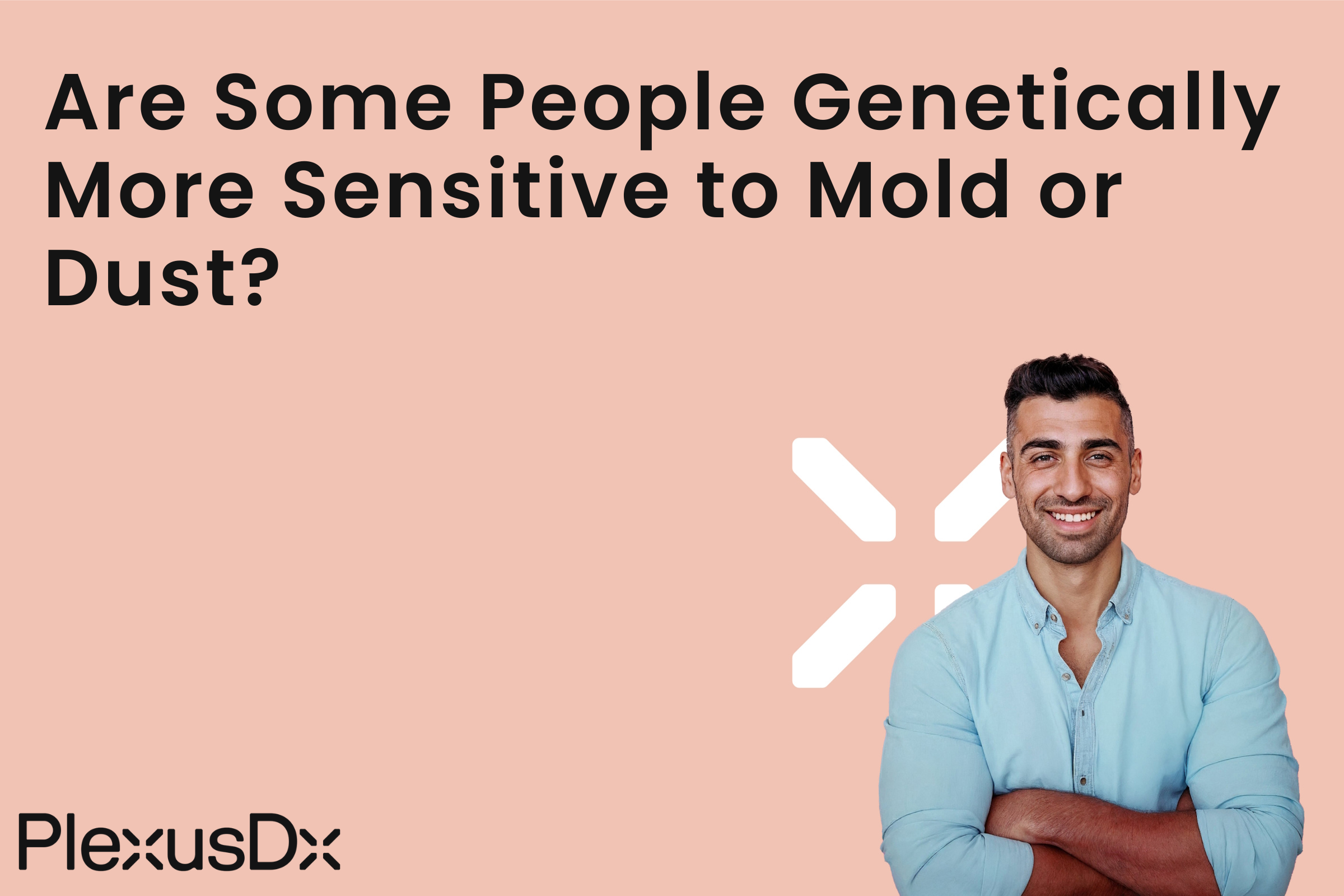Could Genetic Variation Determine Why Certain People Experience Stronger Reactions to Mold and Dust Particles?
There’s an intriguing difference between people who sneeze at dust scents and those who can endure moldy basement environments without any symptoms. Our genetic structure determines how we respond to allergens like mold and dust. This blog post explores genetic factors that cause people to have varying sensitivity levels to environmental irritants including mold and dust.
The Genetic Link to Sensitivity
Research in genetics demonstrates that individual genetic makeup determines immune system responses and sensitivity to common allergens like mold and dust. Specific genes function to produce proteins which control the activity of the immune system. The way the IL-4 gene regulates immune system responses through its variations makes people more vulnerable to allergen exposure. People who possess specific genetic traits show a higher likelihood of developing allergic responses when they encounter mold spores and dust particles.
The human body's detoxification efficiency against allergens depends on genetic factors. The breakdown of toxins in some people depends on how genetic variations affect their liver enzymes. Certain genetic variations make detoxification of allergens slower for some individuals who consequently develop a higher susceptibility to mold and dust exposure.
Personal experiences often highlight these genetic differences. My friend easily cleans the dusty attic but I experience sneezing and wheezing immediately after entering the room. Our genetic differences determine how our bodies react to environmental factors and create these variations.
Understanding Environmental Factors
Our genetic makeup impacts our bodies researchers must study environmental elements to gain complete understanding of these effects. The amount of mold and dust that individuals encounter is determined mostly by their lifestyle choices combined with their living location and house type. Increased humidity exposes residents to more mold while older houses elevate dust and allergen levels.
Sensitivity levels depend on both age and the condition of your health along with the strength of your immune system. Allergens cause stronger reactions in children and elderly people because their immune systems respond more intensely. People can effectively manage their exposure levels and reduce symptoms by understanding these factors.
Practical Advice for Managing Sensitivity
You can apply various effective strategies to decrease exposure and control symptoms when genetic sensitivity to mold or dust is identified in your family.
-
Regular Cleaning
- Maintain a dust-free home environment by conducting routine vacuuming with a HEPA filter vacuum cleaner.
- Wiping surfaces with damp cloths stops dust particles from becoming airborne.
- Eliminate dust mites by washing your bedding and curtains regularly in hot water.
-
Control Humidity
- Maintaining indoor humidity levels below 50% prevents mold development.
- The installation of dehumidifiers in moist areas such as basements and bathrooms helps maintain appropriate moisture levels.
- Maintain proper airflow in your house and concentrate on moisture-prone areas.
-
Allergy-Proof Your Home
- Protective covers for pillows and mattresses help minimize your exposure to allergens.
- Choose hardwood or tile floors since carpets tend to collect dust and allergens.
- Decluttering your home from decorative items leads to reduced dust accumulation.
-
Consult a Healthcare Provider
- Schedule a visit with your healthcare provider when your symptoms persist.
- Consider allergy testing to identify specific sensitivities.
- Discover medical treatments alongside lifestyle adjustments to manage your symptoms successfully.
Conclusion
By studying genetic triggers behind mold and dust reactions people can better manage their health. Through the interaction between genetic factors and environmental influences you can develop methods that control symptoms and minimize exposure risks. The Precision Health & Wellness tests from PlexusDx accessible through PlexusDx.com as well as Amazon and Walmart deliver detailed health insights. Genetic analysis delivers personalized health insights which improve health decision-making through testing methods. Your condition is affected by genetic factors but proactive measures can greatly enhance your quality of life while managing mold and dust sensitivities.
Where to Buy PlexusDx Genetic Tests
Ready to take control of your health with precision genetic insights? You can purchase the PlexusDx Food Sensitivity and Allergy Genetic Test from these trusted retailers:
- 👉 PlexusDx – Order directly from our official website.
- 👉 Amazon – Convenient shopping with fast shipping.
- 👉 Walmart – Buy online from a trusted retailer.
Get your personalized DNA insights today and start optimizing your health! 🚀

Share:
Can a Genetic Test Help Me Improve Focus and Concentration?
How Does a DNA Test Help Assess Gallbladder Health?